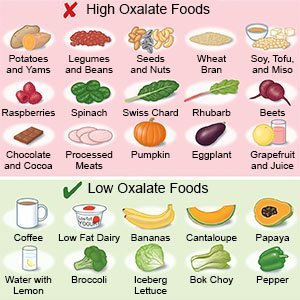So you’ve heard about the Oxalate Diet, but you’re not quite sure what it entails or why it’s important. In this article, we will provide you with a concise overview of the Oxalate Diet recommendations. Oxalates are naturally occurring compounds found in many foods, and for some people, consuming high levels of oxalates can lead to health issues. By following the Oxalate Diet recommendations, you can effectively manage your oxalate intake and potentially reduce the risk of complications. Let’s take a closer look at the foods to include and avoid, as well as some tips to make this diet more manageable and delicious.
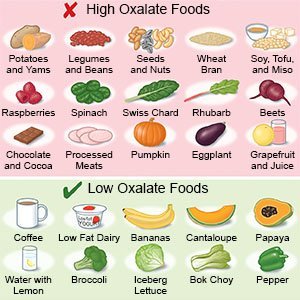
This image is property of www.drugs.com.
Oxalate Overview
Oxalate is a naturally occurring compound found in various foods. It is produced by our bodies as well as by some plants. While oxalate is necessary for normal bodily functions, high levels of oxalate can contribute to the formation of kidney stones. Understanding the sources of oxalate and its impact on our health is essential in making informed dietary choices.
What is Oxalate
Oxalate, also known as oxalic acid, is a substance that naturally occurs in many plants, including fruits, vegetables, and grains. In our bodies, oxalate combines with calcium to form calcium oxalate, which is the most common type of kidney stone. While kidney stones can be caused by various factors, including genetics and dehydration, dietary oxalate plays a significant role in their formation.
Oxalate in Foods
Oxalate can be found in a wide range of foods, both plant-based and animal-based. Some common foods that contain oxalate include spinach, rhubarb, beets, Swiss chard, soy products, sweet potatoes, kale, nuts and seeds, chocolate, cabbage, cauliflower, broccoli, green beans, and blueberries. It is important to note that oxalate content can vary greatly among different varieties and preparations of these foods.
Health Implications of Oxalate
While oxalate is an essential compound in our bodies and is required for certain cell functions, excessive intake of oxalate can lead to health problems, primarily the formation of kidney stones. Kidney stones are solid masses that form in the kidneys when there is an imbalance in the urine’s concentration of substances such as calcium, oxalate, and uric acid. When oxalate combines with calcium, it forms crystals that can aggregate and form stones in the kidneys.
Factors Influencing Oxalate Absorption
Several factors can influence the absorption and metabolism of oxalate in our bodies. Understanding these factors can help in managing oxalate levels effectively.
Calcium
Calcium plays a crucial role in oxalate metabolism. A diet rich in calcium can help reduce the absorption of oxalate from the intestine. Calcium binds to oxalate in the gastrointestinal tract, forming calcium oxalate, which is then excreted in the feces. It is important to note that obtaining calcium from food sources is more beneficial than relying on calcium supplements alone.
Gut Health
The health of our gut also significantly affects oxalate absorption. Imbalances in gut bacteria can lead to increased oxalate absorption. Certain species of gut bacteria produce an enzyme called oxalate-degrading enzyme, which breaks down oxalate and reduces its absorption. Maintaining a healthy gut microbiome through a balanced diet and probiotic-rich foods can help regulate oxalate levels.
Oxalate Content
The oxalate content of foods varies widely. Choosing low oxalate foods over high oxalate foods can help reduce oxalate intake. However, it is important to note that eliminating oxalate-rich foods entirely from the diet is not advisable, as they offer essential nutrients. Striking a balance and consuming these foods in moderation is a better approach.
Cooking Methods
Different cooking methods can affect the amount of oxalate in foods. Boiling, steaming, and soaking can all reduce the oxalate content of certain foods. Cooking foods in water and then discarding the water can help remove oxalate that dissolves during the cooking process. However, it is important to remember that water-soluble nutrients may also be lost during these cooking methods, so a varied diet with a mix of cooking techniques is recommended.
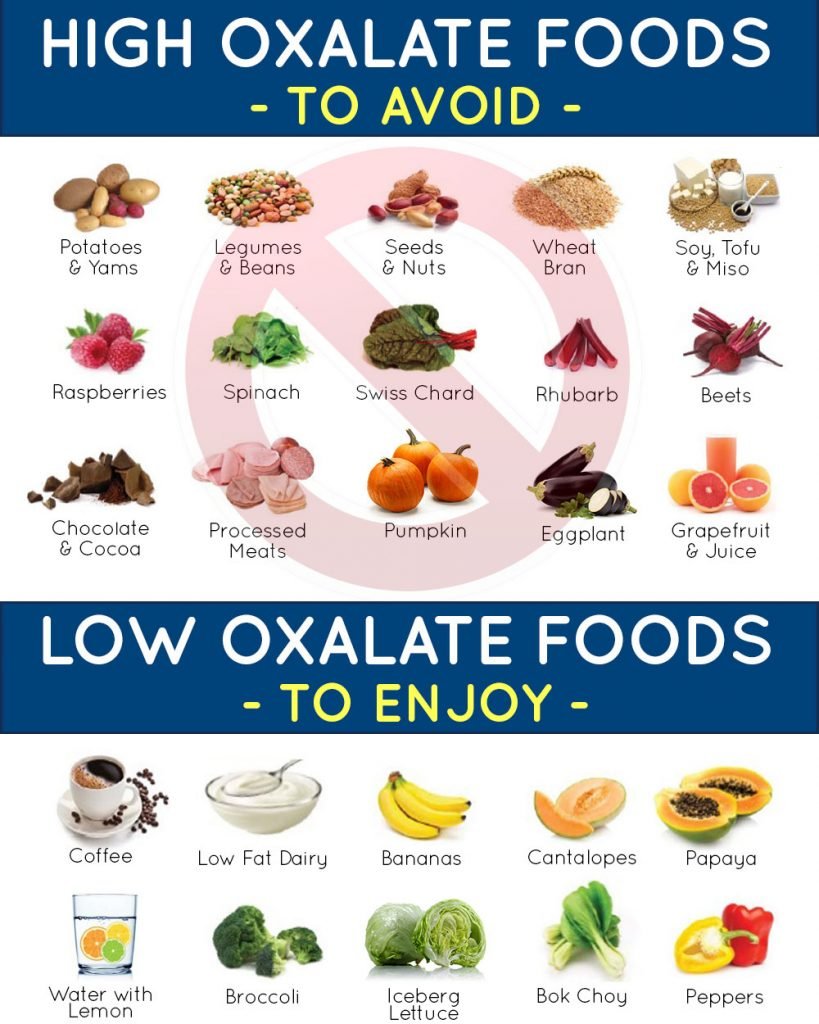
This image is property of kidneycop.com.
Oxalate Diet Recommendations for Preventing Kidney Stones
If you are prone to kidney stones or want to reduce your risk of developing them, here are some dietary recommendations to help manage oxalate levels effectively.
Maintain Hydration
Staying hydrated is essential in preventing kidney stone formation. Drinking plenty of water helps dilute the concentration of substances in urine, including oxalate, thereby reducing the risk of stone formation. Aim to drink at least 8 cups of water or more per day, especially in hot weather or during physical activity.
Increase Calcium Intake
Getting an adequate amount of calcium in your diet can help bind to oxalate and prevent its absorption. Good food sources of calcium include dairy products, leafy greens, fortified plant-based milk, and calcium-rich in non-dairy alternatives such as tofu and fortified orange juice.
Moderate Oxalate Consumption
While it is not necessary to eliminate all high oxalate foods from your diet, it is advisable to consume them in moderation. Limit your intake of foods such as spinach, rhubarb, beets, Swiss chard, soy products, and chocolate. It is also important to balance your meals by incorporating low oxalate foods.
Monitor Sodium Intake
High sodium intake can increase the amount of calcium excreted in urine, potentially leading to the formation of calcium oxalate stones. Limiting your sodium intake by avoiding processed and fast foods and opting for fresh, whole foods can help maintain optimal urinary calcium levels.
High Oxalate Foods to Limit or Avoid
Certain foods are known to have high oxalate content and should be limited or avoided by individuals at risk of kidney stones.
Spinach
While spinach is a nutrient-rich vegetable, it is also high in oxalate. If you are prone to kidney stones, it is advisable to limit your intake of spinach or consume it in moderation.
Rhubarb
Rhubarb is a popular ingredient in desserts but should be consumed sparingly if you are at risk of kidney stones. Its high oxalate content makes it a food to be cautious about.
Beets
Beets are a vibrant and healthy vegetable, but they are also high in oxalate. If you enjoy beets, consider moderating your consumption to manage your oxalate intake.
Swiss Chard
Similar to spinach, Swiss chard is a leafy green that is high in oxalate. While it offers several health benefits, controlling your consumption can be beneficial.
Soy Products
Certain soy products, such as tofu and soy milk, can be high in oxalate. If you regularly consume soy-based products, be mindful of your overall oxalate intake and consider moderation.
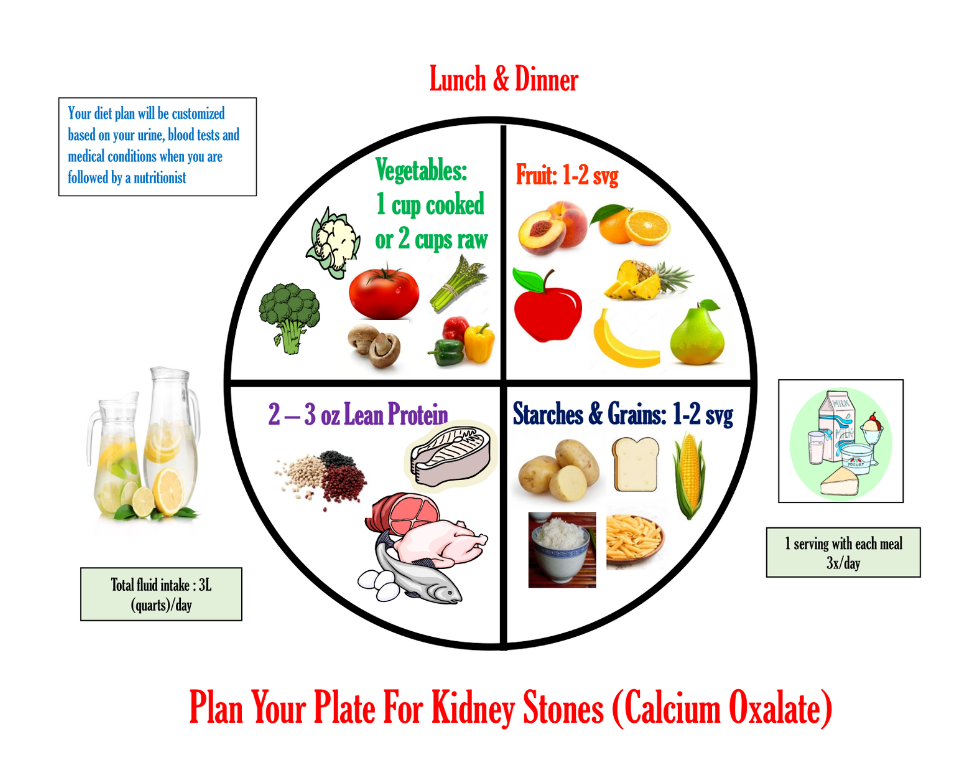
This image is property of www.kidney.org.
Moderate Oxalate Foods to Consume in Moderation
While these foods are not as high in oxalate as the ones mentioned above, they still contain a moderate amount and should be consumed in moderation.
Sweet Potato
Sweet potato is a nutritious and versatile root vegetable. However, it also contains a moderate amount of oxalate. Be mindful of your portion sizes and enjoy it as part of a balanced diet.
Kale
Kale has gained popularity as a superfood, but it is important to moderate your intake if you are concerned about oxalate. Incorporate kale in smaller quantities while diversifying your leafy green choices.
Nuts and Seeds
Nuts and seeds are nutrient-dense foods that offer numerous health benefits. While they are generally considered healthy, some varieties can be moderately high in oxalate. Enjoy them in moderation and consider incorporating a variety of nuts and seeds into your diet.
Chocolate
Chocolate lovers take note, as some types of chocolate, especially dark chocolate, can be moderately high in oxalate. Indulge in moderation and opt for lower oxalate alternatives when possible.
Low Oxalate Foods to Incorporate
Incorporating low oxalate foods into your diet can help balance your intake and reduce the risk of kidney stones.
Cabbage
Cabbage is a cruciferous vegetable that is low in oxalate and offers a range of health benefits. Enjoy it in salads, stir-fries, or as a side dish to add variety to your meals.
Cauliflower
Cauliflower is another cruciferous vegetable that is low in oxalate. It can be steamed, roasted, or used as a lower-carb alternative in various recipes.
Broccoli
Broccoli is a highly nutritious vegetable that is also low in oxalate. Whether steamed, sautéed, or roasted, it can be a colorful and delicious addition to your plate.
Green Beans
Green beans, also known as string beans or snap beans, are crispy and low in oxalate. They can be enjoyed in salads, stir-fries, casseroles, or as a side dish.
Blueberries
Blueberries are a tasty and antioxidant-rich fruit that is low in oxalate. They can be enjoyed fresh, frozen, or incorporated into smoothies, desserts, or baked goods.
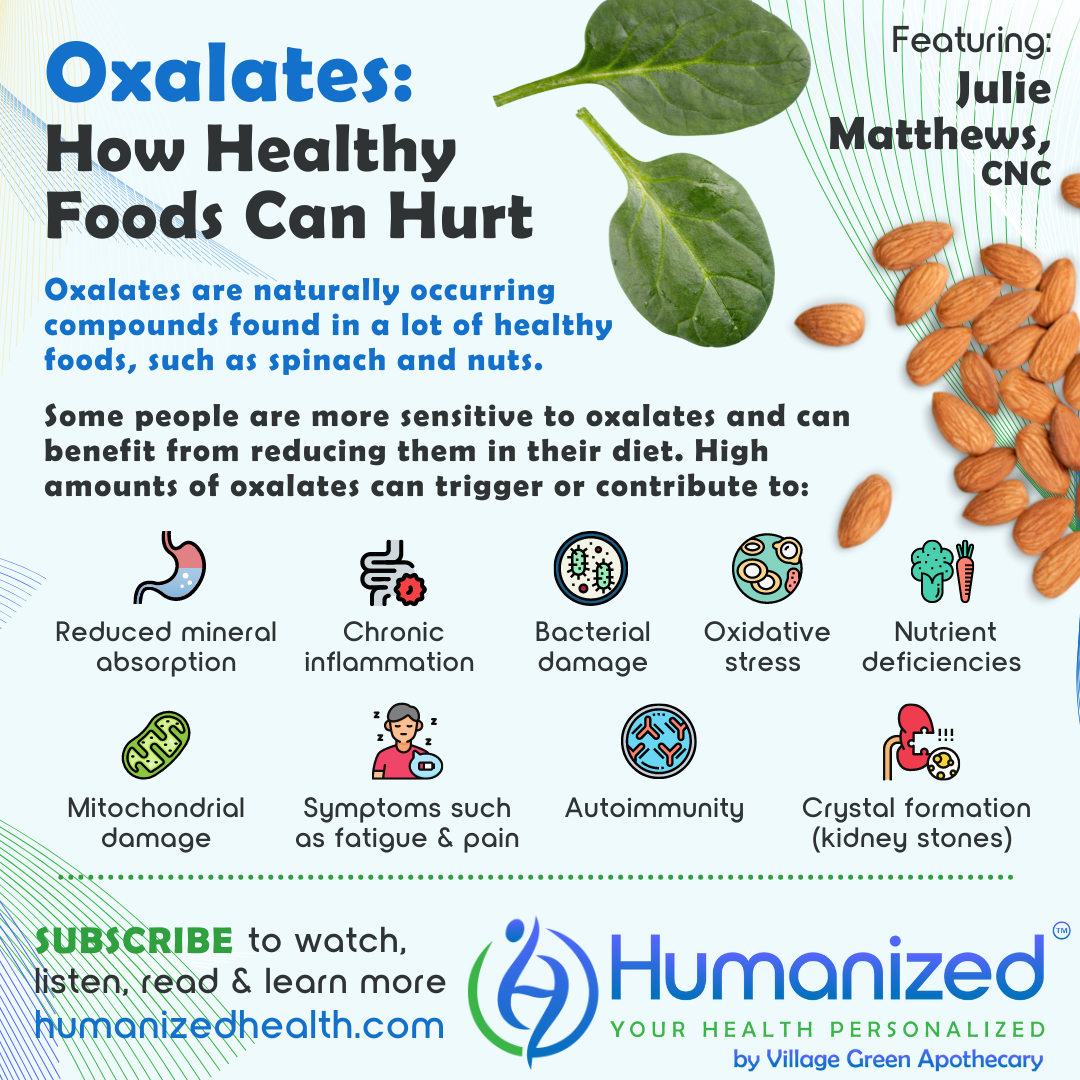
This image is property of humanizedhealth.com.
Cooking Methods to Reduce Oxalate Content
If you want to reduce the oxalate content in certain foods, try incorporating these cooking methods.
Boiling
Boiling foods in water and discarding the water can help reduce the oxalate content. This method is particularly effective for vegetables like spinach and Swiss chard, as boiling releases oxalate into the cooking water.
Steaming
Steaming is another cooking method that can help reduce oxalate content in foods. It preserves the nutrients while minimizing the loss of water-soluble minerals like calcium.
Soaking
Soaking beans, legumes, and grains overnight can help reduce their oxalate content. Discarding the soaking water and rinsing them before cooking can further decrease oxalate levels.
Other Dietary Considerations
In addition to managing your oxalate intake, there are other dietary considerations to keep in mind for overall health and well-being.
Maintain a Balanced Diet
A balanced diet is crucial for overall health. Include a variety of fruits, vegetables, whole grains, lean proteins, and healthy fats in your diet. In combination with managing oxalate intake, a balanced diet can help prevent various health conditions.
Avoid Crash Diets
Crash diets or rapid weight loss techniques can increase the risk of kidney stones. These diets often lack essential nutrients and can alter the body’s metabolic processes, affecting oxalate metabolism. Instead, focus on sustainable weight loss methods and incorporate a balanced diet.
Talk to a Nutritionist
If you have a history of kidney stones or are concerned about your oxalate intake, it is recommended to speak with a registered dietitian or nutritionist. They can provide personalized dietary guidance and help you create a meal plan that meets your nutritional needs while managing oxalate levels effectively.
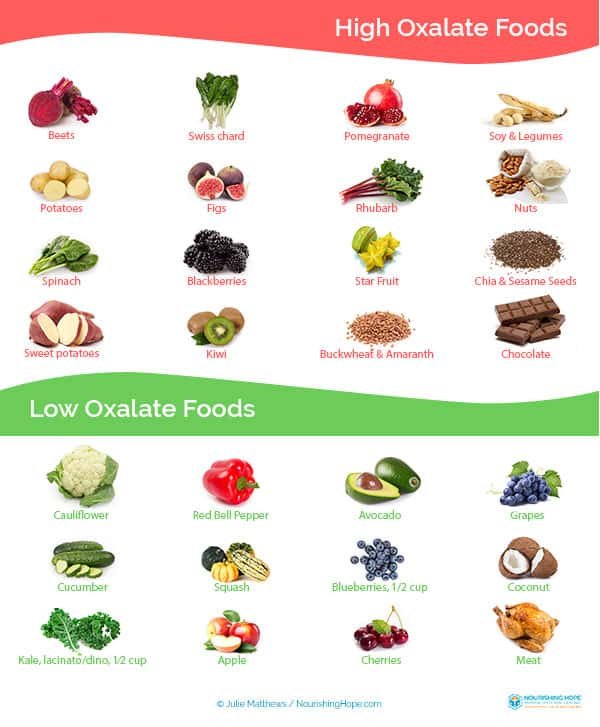
This image is property of nourishinghope.com.
Potential Risks and Considerations
While managing oxalate intake is important, it is essential to consider other factors as well.
Individual Variations
Every individual’s tolerance to oxalate varies. Some people may be more susceptible to the formation of kidney stones even with low oxalate intake, while others may be less prone to stone formation despite a diet high in oxalate. It is crucial to listen to your body and work with a healthcare professional to determine the best approach for you.
Underlying Medical Conditions
Certain medical conditions, such as hyperoxaluria, irritable bowel syndrome, or inflammatory bowel disease, may require stricter oxalate restrictions. If you have any underlying medical conditions, consult with a healthcare professional before making significant dietary changes.
Balance with Other Nutrients
While managing oxalate intake is important, it should not come at the expense of other essential nutrients. It is crucial to maintain a balanced and varied diet that provides all the necessary vitamins, minerals, and macronutrients.
Conclusion
Managing oxalate intake can play a crucial role in preventing the formation of kidney stones. By understanding the sources of oxalate, adopting healthy eating habits, and incorporating a variety of low oxalate foods into your diet, you can reduce your risk of kidney stone formation. Remember to stay hydrated, maintain a balanced diet, and consider consulting with a healthcare professional or registered dietitian for personalized guidance. With the right approach, you can enjoy a nutritious diet while minimizing the health implications of oxalate.

